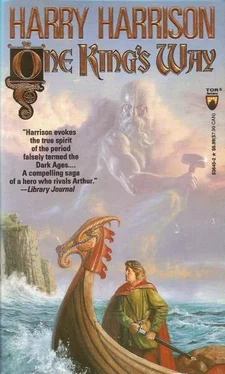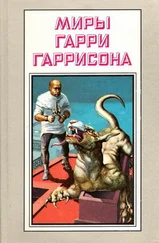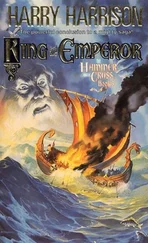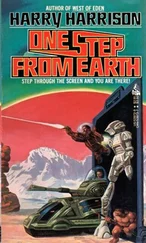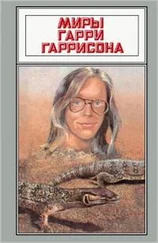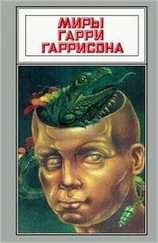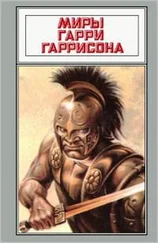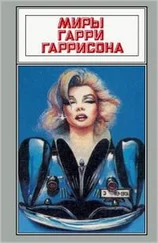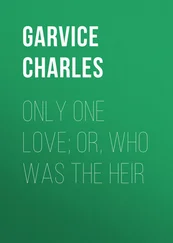Harry Harrison and John Holm
One King's Way
Frozen in the hard grip of the worst winter in memory, all of England lay under a frigid mantle of snow. The great river Thames was covered with ice from bank to bank. The road leading west to Winchester was a flint-hard, filthy track of frozen hoofprints and caked manure. The horses slipped on the ice, snorting out steaming vapors. Their riders, huddled and chilled, looked up at the dark walls of the great Minster and spurred their tired mounts with little result.
This was the 21st of March of the year of our Lord's Incarnation 867, and a day of greatest portent. A royal union was taking place today. Filling the pews were the military aristocracy of Wessex, every alderman, thane, and high-reeve who could possibly be squeezed within the stone walls, gaping and sweating, a low mutter of explanation and translation continually rising from them, watching intently as the whole elaborate ritual of coronation of a Christian king unrolled its stately dance.
In the right-hand pew at the very front of the nave of the great Minster at Winchester was Shef Sigvarthsson, co-king of the English—and king in his own right of all those parts of it north of the Thames which he could persuade into obedience. He sat uneasily, aware of the many eyes on him.
They saw a man whose age was hard to guess. His thick dark hair and smooth-shaven face made him seem young, too young for the gold circlet of royalty on his brow and the heavy bracelets on both arms. He had the height and the broad shoulders of a warrior in his prime—or of an ironsmith, which was what he had been. Yet for all his youth the dark hair was already streaked with white, and his face showed the betraying grooves of care and pain. His right eye-socket was an empty hollow, and the patch that covered it could not disguise the way the flesh had drawn and fallen in. The whole of England and half of Europe beyond knew how he had been half-blinded on the order of Sigurth Snake-eye, eldest of the sons of Ragnar. And how the smith's apprentice had taken his revenge by killing Sigurth's brother, Ivar the Boneless, Champion of the North, rising from near-thrall to carl of the Viking Great Army, to jarl under the orders of Alfred Atheling. Now to being king and co-ruler with Alfred himself, joint victors over the Frankish Crusade only the year before. Rumors ran everywhere about the meaning of the strange sign he wore round his neck as emblem of the Asgarth Way, an emblem none had worn before him: the kraki , the pole-ladder of the mysterious deity Rig.
Shef had no wish to see the coronation, still less the ceremony that would follow. The grooves of pain deepened in his face as he watched. Yet he understood why he had to be there, he and his men: to make a point, to support his co-king. It was Alfred's request, as close to a command as possible, that had brought him here.
“You don't have to take the Mass,” Alfred had said firmly to Shef and his supporters. “You don't even have to sing the hymns. But I want you there at the coronation, wearing your pendants, wearing your crown, Shef. Making a show. Pick out your most impressive men, and look rich and powerful. I want everyone to see that I am supported fully by the men of the North, the conquerors of Ivar the Boneless and Charles the Bald. The pagans. Not the wild pagans, the slavers and sacrificers, like the sons of Ragnar: but the men of the Way, the Way of Asgarth, the pendant-folk.”
They had at least managed to do that, Shef thought, looking about. Put on their mettle, the two dozen Way-folk selected to sit in the front ranks had responded nobly. Guthmund the Greedy was carrying more gold and silver on his person, in arm-rings, torque, and belt-buckle, than any five thanes of Wessex put together. Of course he had shared in three successive distributions of plunder under Shef, whose fame, though fabulous, was not all exaggeration. Thorvin priest of Thor and his colleague Skaldfinn priest of Njörth, though opposed to worldly display, had nevertheless dressed in shining white and brought with them their signs of office, the short hammer for Thorvin and the seaman's boat for Skaldfinn. Cwicca, Osmod and the other English freedmen now veterans of Shef's campaigns, though hopelessly unimpressive in person from youthful hunger, had managed to dress themselves in the unheard-of luxury of silken tunics. They also carried carefully sloped the tools of their trade: halberds, crossbows, and catapult-winders. Shef suspected that the mere sight of men so obviously English, so obviously low-born, and so obviously rich beyond the dreams of the average Wessex thane, let alone churl, was the most powerful silent argument for Alfred's success that could be found.
The ceremony had begun hours before with the forming of a great procession from the king's residence to the Minster itself—a walk of barely a hundred yards, but every yard of them seeming to demand some special observance. Then the high mass in the Minster, the nobles of the realm crowding up to take communion, not so much out of reverence as out of an earnest desire not to miss any luck or blessing that might be granted to others. Among them, Shef had noted, had been many seemingly incongruous figures, the undersized frames and rough clothes of slaves that Alfred had freed and churls he had promoted. They were now here to take the word back to their towns and villages: the word that there was no doubt, no doubt at all that Alfred Atheling was now Alfred King of the West Saxons and of the Mark, by all the laws of man and of the Christian God.
Also in the first row, towering over those around him, sat the Marshal of Wessex, the man chosen by custom as the most notable warrior of the kingdom hand-to-hand. The Marshal, Wigheard, was indeed an imposing sight, nearer seven foot than six and twenty English stone if an ounce in weight; he carried the king's state sword at arm's length as effortlessly as a twig, and had already shown uncanny ability to fence with a halberd as if it were a willow-wand.
There was one man in Shef's group, sitting immediately to his left, who had difficulty following the ceremony, who glanced again and again at the Champion. This was the giant Brand, himself champion of the men of Halogaland, still wasted and shrunken from the belly-wound he had taken in his duel on the gangplank with Ivar the Boneless, but slowly regaining strength. Brand, shrunken as he was, still seemed the bigger man of the two. His bones were almost top big for his skin, with knuckles like rocks, and ridges jutting out over his eyebrows like armor. Brand's fists, Shef had once noted by careful comparison, were bigger than a pint pot: not just huge, but disproportionate even to the rest of him. “Men grow big where I come from,” was all that Brand would ever say.
The noise of the congregation died as Alfred, now thoroughly blessed and prayed over, turned to face them to take his oaths. For the first time Latin was abandoned and the service broke into English as Alfred's senior alderman asked the solemn question: “Do you grant us our rightful laws and customs to be held, and do you swear after your power to grant rightful dooms and defend the rights of your people against every enemy?”
“I do.” Alfred looked round the packed Minster. “I have done so, and I will do so again.” A rumble of assent.
Now a trickier moment, Shef thought as the alderman stepped back and the senior bishop stepped forward. For one thing the bishop was startlingly young—and for good reason. After Alfred's dispossession of the Church, his excommunication by the Pope, the Crusade against him and his final declaration of non-communion with Rome, every senior cleric in his kingdom had left. From the Archbishops of York and Canterbury down to the least bishop and abbot. Alfred's response was to promote ten of the best remaining junior priests and tell them the Church in England was in their hands. Now one of them, Eanfrith Bishop of Winchester, six months before priest of a village no-one had heard of, came forward to ask his question.
Читать дальше
